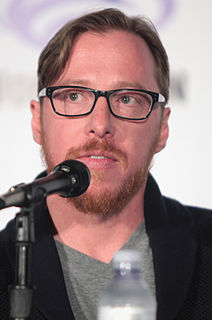A Quote by Monica Ali
I guess there's a sort of cycle with writing books. There's all the researching and then the imagining and writing - which is the real job - and then there's always a period when the book comes out and you have to lift your head and venture out.
Related Quotes
You've got to be a good reader. So whatever genre that you're interested in, read a lot of books about it and it's better than any kind of writing class you'll ever take. You will absorb techniques and then in a lot of cases you can just start writing using the style of the book or the author that you admire and then your own style will emerge out of that. Be a diligent reader and then try to write seriously, professionally and approach everything in writing in a professional way.
Being sad and going out on terrible dates and having horrible breakups and then having a shitty job and then quitting the shitty job and then wondering if you shouldn't have quit the shitty job and then getting a new shitty job that you get fired off of after six weeks, it's all so good for your writing.
For a while the creative writing community sort of sprung out of places like Iowa and Syracuse. The graduates sort of went out, and they would found creative writing departments in the little colleges where they went, and then some of those would found other ones. I mean every college has got a creative writing department, so where are the jobs coming from? There are not any jobs out there.
If you're writing a thriller, and you don't make it compelling, then you've really not done your job. So it's easier for me not to set out with certain goals, and then I can't see them as unmet. It's like life generally: If I'm not aiming to be physically fit, then I'm not always thinking about being unfit.
I came out with a book called The True Secret of Writing: Connecting Life with Language. It's a book that describes how writing is a practice and how my teaching is part of that practice. I direct the writing and create books but underneath, there's always the river of practice happening. No good, no bad. Just do it.
When writing goes painfully, when it’s hideously difficult, and one feels real despair (ah, the despair, silly as it is, is real!)–then naturally one ought to continue with the work; it would be cowardly to retreat. But when writing goes smoothly–why then one certainly should keep on working, since it would be stupid to stop. Consequently one is always writing or should be writing.
As a young kid I assumed that everybody was sort of on the same wavelength as I was and then I found out in a lot of small ways that that wasn't the case. It's sort of a mixed blessing. My mind is like a puppy. It goes all over. I guess writing fiction was a way of harnessing that. I could hook a puppy up to a treadmill and get something out of it.
I'm definitely feeling whatever's going on pretty hard. It's like playing Barbies. You're holding the Barbies, but all of the action is happening inside of your head. You might be holding them or even speaking out loud, but really, all of the animation is internal. That's sort of how I feel about my writing. And then the really awful thing is that at the end of the day after crying and experiencing things, then you look at what you've written and you're like, "Hmm, there's half a page that's good here." Then you throw out everything else.






































